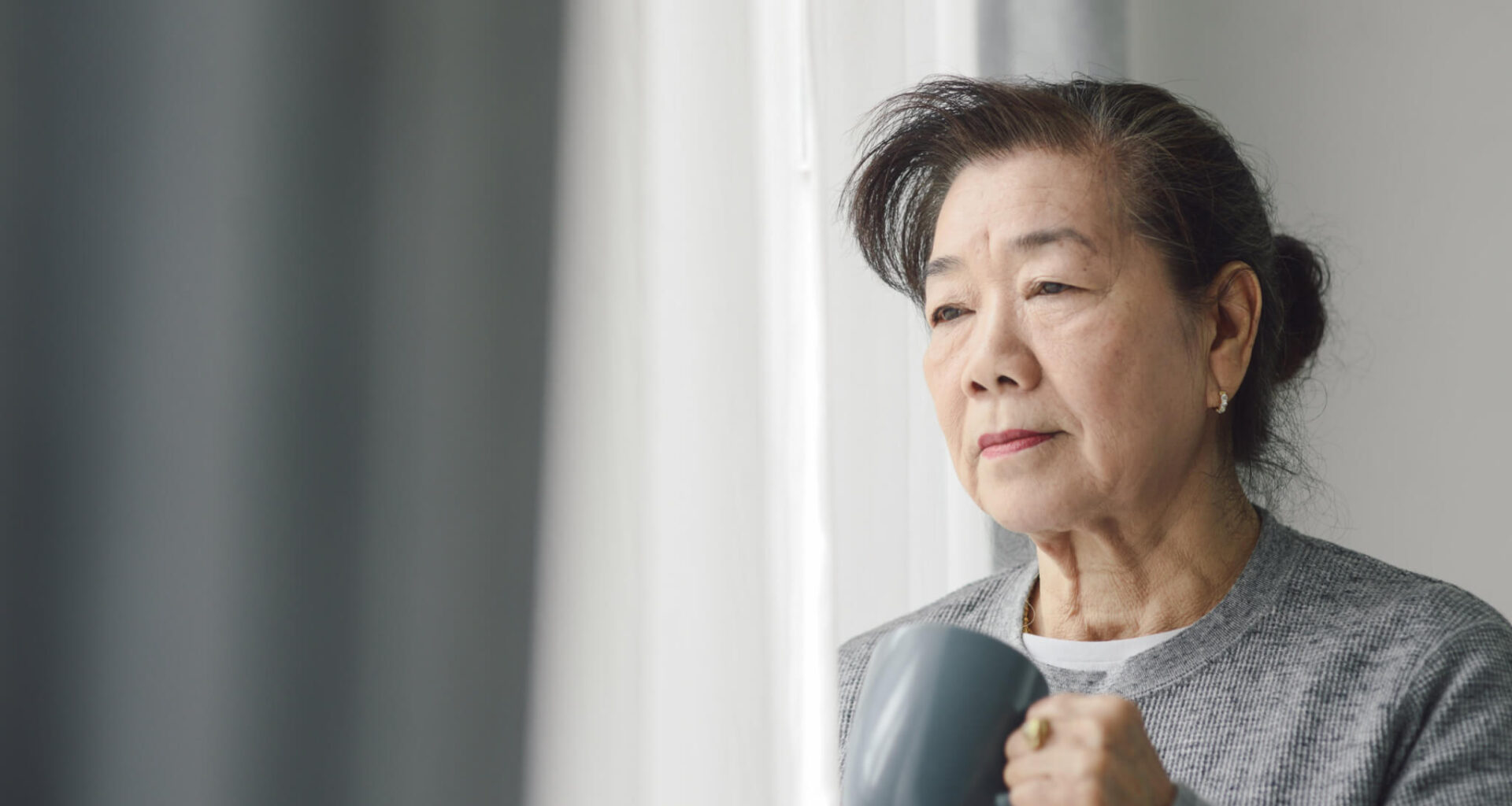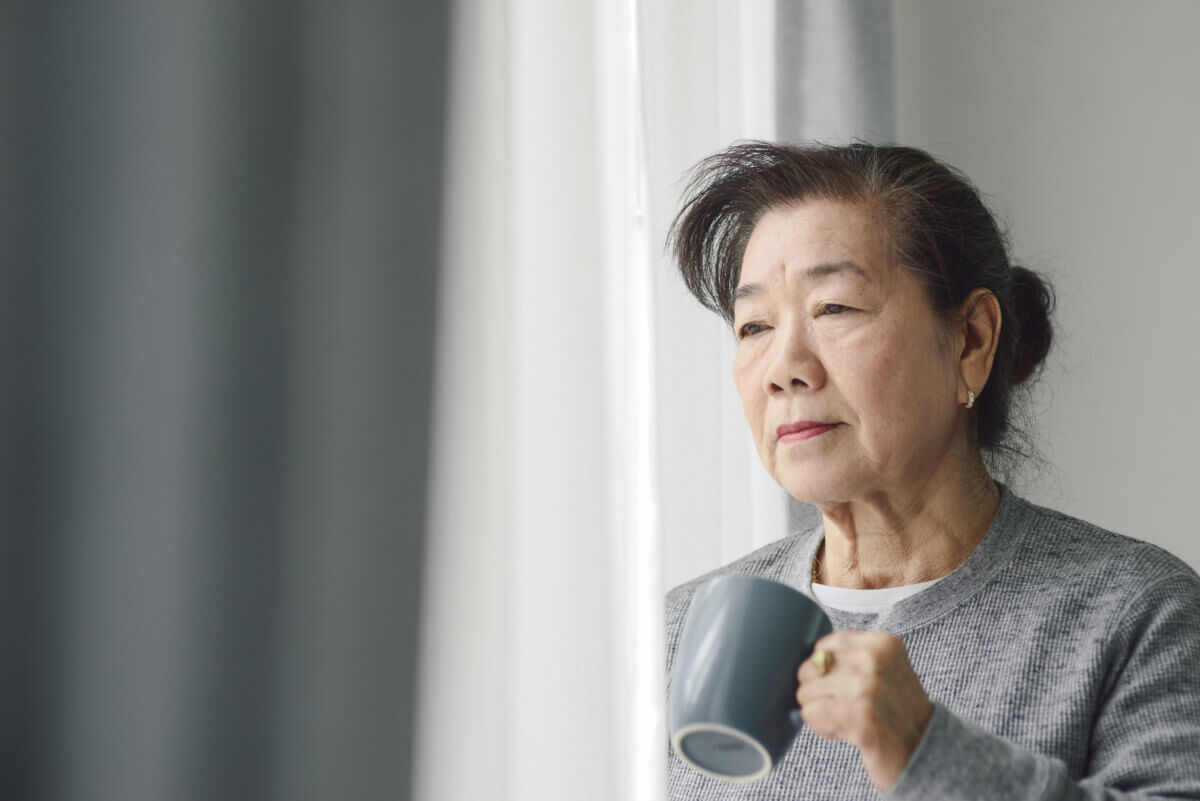(© nuiiko – stock.adobe.com)
In A Nutshell
Older Chinese Americans who tend to keep stress, hopelessness, and self-doubt to themselves showed faster memory decline over time.
This “stress internalization” pattern was linked to memory changes but not to other thinking skills like planning or problem-solving.
Social activity and cultural adaptation boosted starting memory scores but didn’t slow the rate of decline.
Researchers say the habit is changeable and suggest community education, culturally tailored mental health programs, and better screening by healthcare providers.
NEW BRUNSWICK, N.J. — If you’ve ever been told to “stay strong” and keep your troubles to yourself, you might think it’s a sign of resilience. But a new study suggests that for some people, especially older Chinese Americans, that approach might quietly speed up memory loss over time.
The research, published in The Journal of Prevention of Alzheimer’s Disease, followed 1,528 Chinese American adults in the Chicago area who were in their seventies on average. All were part of the Population Study of Chinese Elderly (PINE) — the largest community-based study of its kind in the United States. Over roughly four years, participants took part in three rounds of memory and thinking tests, each given in their preferred Chinese dialect to make sure language wasn’t a barrier.
The researchers were looking for patterns between mental performance and different aspects of life: emotional well-being, social support, health problems, and cultural adaptation. One factor stood out — something they called “stress internalization.”
What ‘Stress Internalization’ Really Means
Stress internalization is a term psychologists use to describe people who feel a high level of stress and hopelessness, along with a lower sense of control or discipline in their daily habits. Instead of sharing their frustrations or asking for help, they tend to keep it all in.
In the study, people with high stress internalization scores experienced memory decline at a faster pace than their peers. While the year-to-year changes were small, they built up over time. Importantly, this effect was seen only in memory-related skills — such as recalling a list of words after a short break — and not in other cognitive abilities like planning, organizing, or problem-solving.
The authors note, “These maladaptive traits have been linked to the Asian model minority stereotype but all the same potentially modifiable.” In other words, while cultural norms that encourage stoicism may be deeply rooted, they are not permanent — and they can be changed with the right kind of support.

Why Culture Plays a Role
For many older Chinese Americans, cultural values and life experiences can make stress internalization more likely. Roughly 69 percent of Chinese Americans are immigrants, and two-thirds of older Chinese Americans speak little or no English. Many arrived in the United States during midlife and have spent decades navigating a society that often holds the “model minority” stereotype. This is the assumption that Asian Americans are naturally successful, hardworking, and self-reliant.
This stereotype can be double-edged. While it’s often intended as praise, it can also create pressure to downplay struggles, avoid asking for help, and “keep face” by appearing strong even in difficult situations. For some, this means carrying emotional burdens alone, which may take a toll on both mental and physical health over time.
Why Social Connections Didn’t Stop the Decline
You might assume that having a wide social circle, participating in community activities, or becoming more culturally adapted to American life would protect against memory loss. In this study, those factors were indeed linked to higher memory scores at the start. But they didn’t seem to slow the decline once it began.
That means people who were more socially active or better adapted to life in the U.S. started ahead, but they lost ground at the same rate as others. The benefits were about starting from a higher baseline, not about keeping memory sharper for longer.
This pattern echoes findings from other communities, where strong beginnings don’t always translate to slower decline. It suggests that once certain factors like stress internalization take hold, they may outweigh the protective effects of social engagement.
About 60 percent of the study participants lived in Chicago’s Chinatown, a neighborhood rich in culture, tradition, and community ties. Living in such an environment can be comforting and help preserve cultural identity. But it can also reinforce traditional norms about emotional expression, namely, that struggles should be handled privately.
The researchers note that this mirrors a concept known as “John Henryism,” first studied in African American communities. It describes the health toll of constantly working to overcome challenges without enough resources or support. While the contexts are different, the underlying strain of pushing forward in silence may have similar effects.
Why It Matters
The good news is that stress internalization isn’t a medical condition — it’s a pattern of coping. That makes it potentially changeable.
The study’s authors suggest a few steps that could help:
Community education to challenge stereotypes that discourage seeking help.
Culturally tailored mental health programs for older Asian Americans.
Training for healthcare providers to spot subtle signs of emotional distress in patients who might not speak up.
These changes could make it easier for older adults to share what they’re going through, and get support before stress starts to affect their memory.
What the Study Couldn’t Tell Us
Like all research, this study had its limits. It focused on a single metropolitan area, so the findings might not apply to all older Chinese Americans. Nearly 1,000 participants either didn’t complete all three testing rounds or were excluded from the analysis. Those who stayed in the study tended to be somewhat healthier and had better cognitive scores to start with, which could affect the results.
The memory tests, while translated into Chinese, were originally designed for English speakers. That means they may not fully capture all aspects of thinking and memory that are important in Chinese-speaking cultures.
A Simple Takeaway
This research doesn’t prove that keeping stress inside directly causes memory loss. But it does show a clear link between the two, at least in this group of older Chinese Americans. The findings add to a growing body of evidence that emotional health and brain health are connected, and that the way we handle stress can make a difference over time.
The message is simple: resilience isn’t just about pushing through on your own. Sometimes the strongest thing you can do for your mind — and your memory — is to speak up, share your burdens, and let others help carry the load
Disclaimer: This article is based on peer-reviewed research. The findings describe associations observed in this specific study and do not prove cause and effect. Results may not apply to all individuals. This summary is for informational purposes only and is not a substitute for professional medical advice.
Paper Summary
Methodology
Researchers followed 1,528 older Chinese Americans (average age 71) living in the Chicago metropolitan area over three waves of data collection spanning four years. Participants completed cognitive tests in their preferred Chinese dialect and answered questionnaires about psychological well-being, social support, health conditions, and demographics. The team used statistical techniques to identify underlying patterns in participants’ responses, discovering three main psychological patterns: stress internalization (high perceived stress, hopelessness, and low sense of control), neighborhood/community connection, and external stress relief. They tracked changes in two cognitive areas, memory and executive functioning, over time.
Results
Only stress internalization was significantly associated with memory decline over time, with higher stress internalization corresponding to faster annual memory loss. Factors like cultural adaptation, social engagement, and activity participation showed no long-term effects on cognitive change, despite being associated with better baseline performance. Executive functioning showed no association with any psychological factors over time. The effects were specific to memory and remained significant even after controlling for demographic factors, health conditions, and other potential influences.
Limitations
The study was limited to Chinese Americans in one geographic area, potentially limiting broader applicability. Nearly 1,000 participants dropped out over the study period, with healthier individuals more likely to complete all testing. The cognitive tests, while translated, were originally developed for English-speaking populations and may not fully capture cognitive abilities relevant to Chinese-speaking adults. The study relied on self-reported health conditions and psychological measures, which can be subject to memory and response bias.
Funding and Disclosures
This research was supported by grants from the National Institute on Aging, including the Rutgers University Asian Resource Center for Minority Aging Research (P30 AG059304), NYU-Rutgers Resource Center for Alzheimer’s and Dementia Research in Asian and Pacific Americans (P30 AG083257), and the Alzheimer’s Disease Neuroimaging Initiative Health Equity Scholar Program (U19 AG024904). The researchers reported no conflicts of interest related to the study.
Publication Information
Chen, M.H., Ma, Y., Verma, C., Bergren, S., & Hu, W.T. “Stress internalization is a top risk for age-associated cognitive decline among older Chinese in the U.S.,” was published on July 18, 2025 in The Journal of Prevention of Alzheimer’s Disease. DOI: 10.1016/j.tjpad.2025.100270


